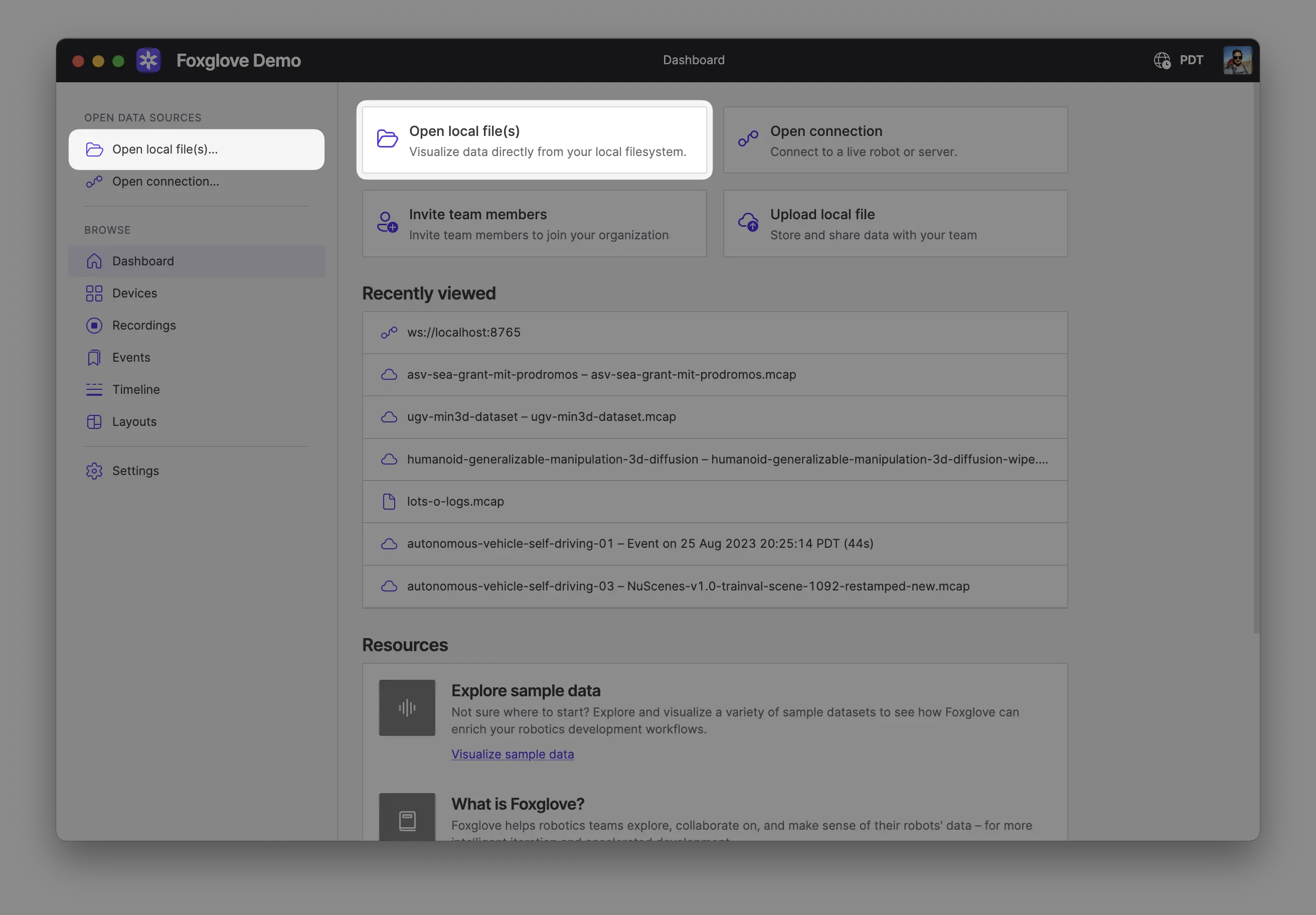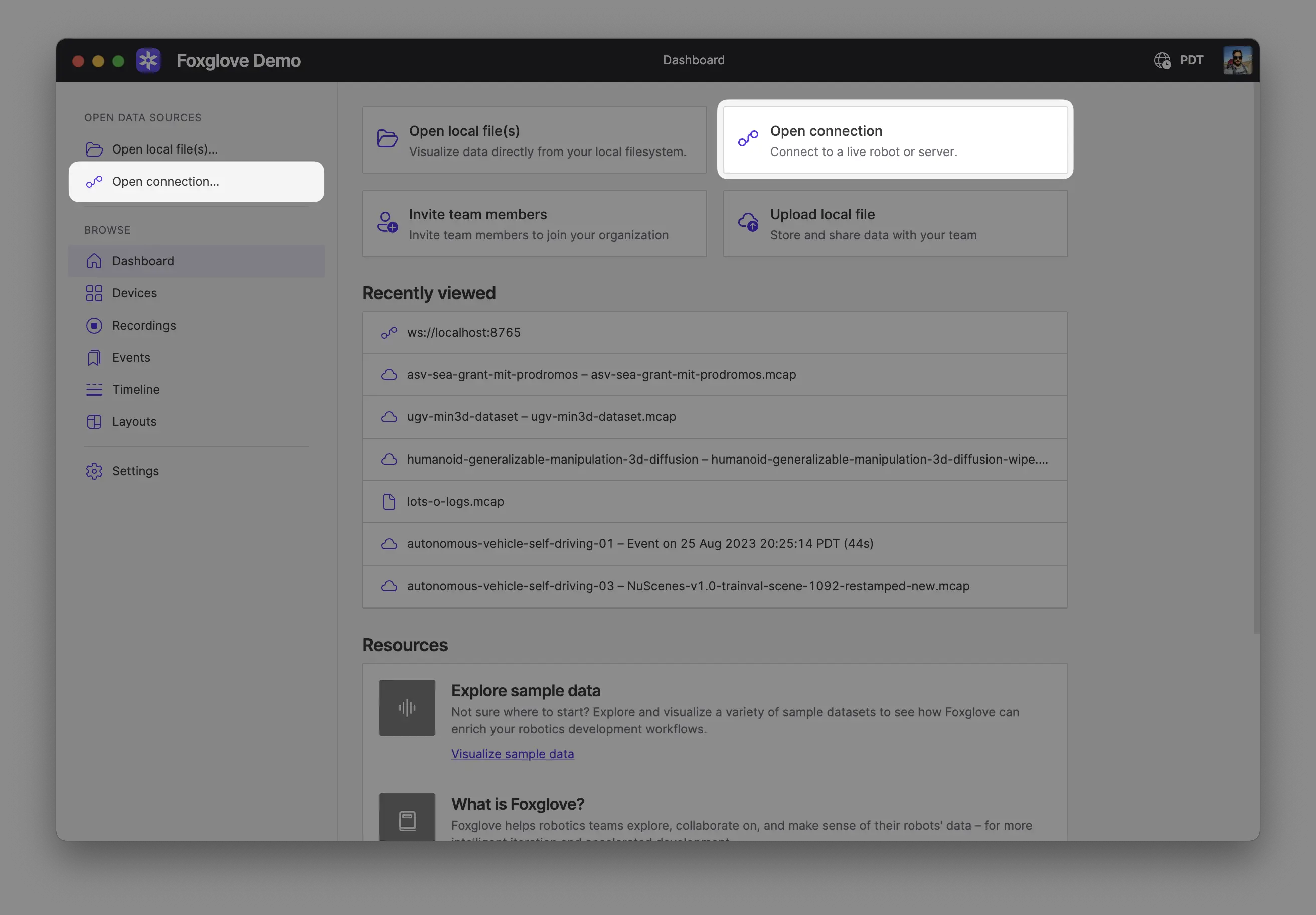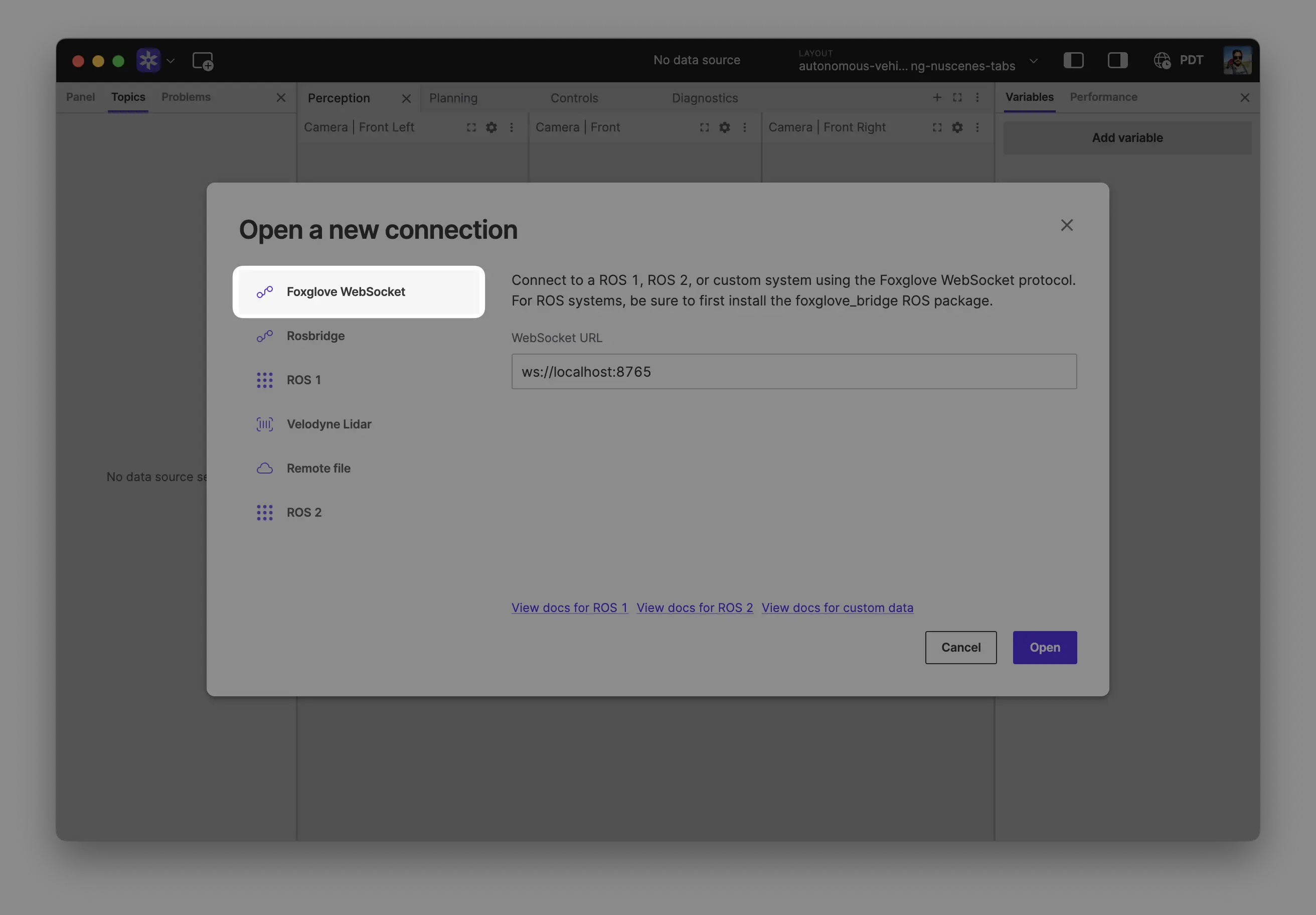Python
Connect directly to Foxglove or play back local data recorded with the Python SDK.
Install the SDK
The SDK is distributed through PyPI. You can get started with a new project or use Foxglove from a notebook.
Install foxglove-sdk from PyPI: https://pypi.org/project/foxglove-sdk
pip install foxglove-sdk
The exact installation will depend on your package manager; here's an example using poetry.
poetry new example
poetry add foxglove-sdk
Live data
Log messages from Python
Create a new file in your project (for example, src/example/main.py)
import foxglove
import time
foxglove.start_server()
while True:
foxglove.log("/hello", {"time": time.time()})
time.sleep(0.03)
Run the script
Run the script to start logging. Following the poetry example above, you can run the following command from the "example" directory:
poetry run python src/example/main.py
Connect
In Foxglove, select "Open connection" from the dashboard or left-hand menu.
Select "Foxglove WebSocket" in the "Open a new connection" dialog, then click "Open" to accept the default connection string:
Local data
Recording data to a file
The SDK can also log data to disk. Let's augment the example above to also produce an MCAP file which can later be opened in Foxglove:
import foxglove
import time
foxglove.start_server()
# Keep a reference to the mcap. It will automatically close the file when the program exits, but
# we could also close it manually with `mcap.close()`.
mcap = foxglove.open_mcap("example.mcap")
while True:
foxglove.log("/hello", {"time": time.time()})
time.sleep(0.03)
Viewing data from a file
Open your recording(s) directly from your computer by:
- Dragging and dropping them into Foxglove
- Using
Cmd/Ctrl + o - Clicking Open local file(s) in the app

When opening multiple files, Foxglove will display the data as a single merged timeline. The files must be of the same format.
Explore your data
Your data is now available for exploring in Foxglove. Add some panels to begin visualizing what your robot is seeing and producing. Not sure where to start? Try adding a Raw Messages panel, Plot panel, or 3D panel.
Links and resources
- SDK documentation with a more detailed example
- Python reference
- Source code with additional examples

